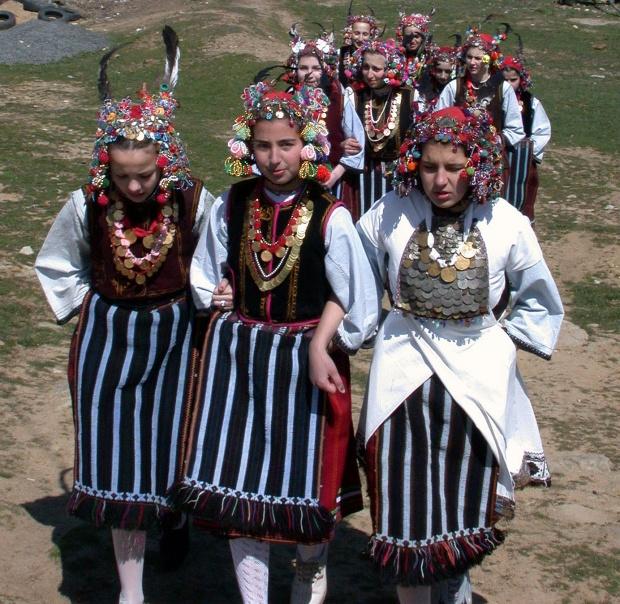St. Lazarus Feast (Lazarovden in Bulgarian) is one of the moveable feasts, because its date is set according to the date of Easter every single year, and is celebrated on the Saturday before Palm Sunday. In the gospels this is the day of the Raising of Lazarus, one of the miracles performed by Jesus Christ.
 In the Bulgarian popular tradition the feast of Lazaritsa, Lazarnitsa ot Lazarus Saturday is a stage in the transition from winter to spring, and also from death to life. In the Bulgarian mythology Lazarus is the lord of woods and bushes. He carries an axe and clears woods to make farming fields for peasants. He comes to bring a new beginning for nature and his gift for girls is marriage.
In the Bulgarian popular tradition the feast of Lazaritsa, Lazarnitsa ot Lazarus Saturday is a stage in the transition from winter to spring, and also from death to life. In the Bulgarian mythology Lazarus is the lord of woods and bushes. He carries an axe and clears woods to make farming fields for peasants. He comes to bring a new beginning for nature and his gift for girls is marriage.
This is the day of initiation of girls in pre-marriage age. With their heads decorated with green leaves, flowers and bird feathers aimed to bring luck, they tour the houses of the village and dance their Lazarus dances. In the traditional code, a girl who failed to take part in Lazarus girls' celebrations will never get married. It could be that a mountain dragon would come and take her away to marry her.
The ritual songs of Lazarki (girls who join Lazarus Saturday rituals) convey best wishes for health and fertility; they bless farmers, young girls and boys, young men, women and babies. The ritual tour of the village is meant to create a spirit of joy, celebration, luck and fertility in the community. Housewives would give white eggs and coins to girls. The eggs will later be painted for Easter. Drawing up a symbolic circle, Lazarki always return to the point where they have started. In the popular tradition the circle was ascribed with a powerful protective function.
English Daniela Konstantinova
On Christmas morning the glad tidings have spread that the Son of God was born, making it a special day celebrated with a lot of festive rituals. After Christmas Eve, when families get together for a festive meal, comes Christmas. On 25 December the..
Christmas Eve, once called Budnik, Little Christmas or Neyadka, was considered part of a dark, frightening period, charged with the potential to influence the entire upcoming year. For this reason, the night before Christmas was associated with..
It's Ignazhden! On St Ignatius' Day, 20 December, we honour the memory of St Ignatius the Theophorus. In the Bulgarian calendar St Ignatius' Day (Ignazhden) is not only a religious but also a folklore holiday. According to national tradition, it is..
The Philip Koutev National School of Folk Arts is not just any school - it is a talent laboratory. It is the first school not only in Bulgaria but in..

+359 2 9336 661
